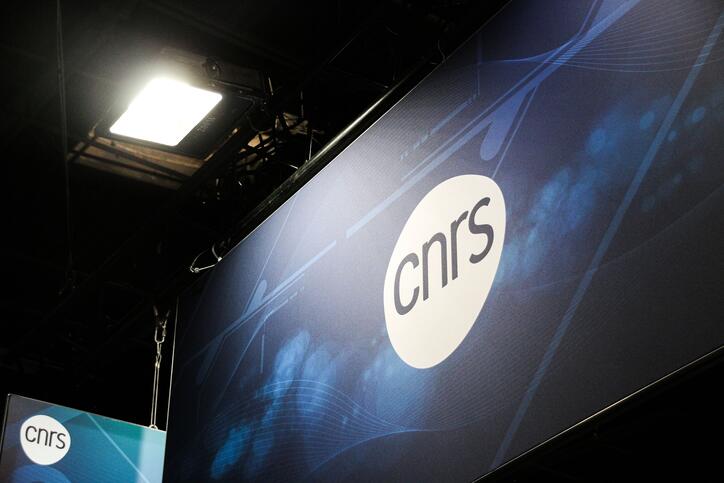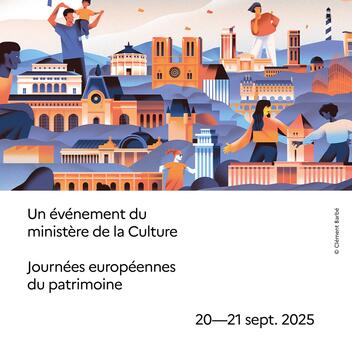
Prestige of French research: an alumnus in the CNRS fellow-ambassadors
The CNRS “Fellow-Ambassadors” programme has welcomed nine new prestigious figures from world research to serve the scientific community. This scheme was set up in 2023 in the academic tradition of “eminent visiting professors” and enables leading world research figures to galvanise French research. With this year’s eminent researchers, the CNRS welcomes an alumnus this year, Soeren Fournais, from Denmark, a specialist in the mathematical aspects of quantum mechanics, who attended several study courses at the University of Paris Sud (now University of Paris Saclay).
As the CNRS explained in 2023, the creation of “fellow-ambassadors” has two complementary objectives: first, the quality of world-class scientists joining the Institute “demonstrates the attractiveness of the CNRS that goes beyond a simple speech”, and second, the programme seeks to energize French research. The CNRS takes advantage of its standing and renown to draw the world’s greatest scientists.
Soeren Fournais, a Danish alumnus who knows France very well
All ambassadors have permanent posts abroad, while also having important scientific relationships with French scientists. With the fellow-ambassadors mechanism, they now commit to spending at least one month per year for three years in one or more laboratories in France.
This is the case of an alumnae that know France well, Soeren Fournais, who is part of the new nine fellow-ambassadors and attended studies in France.
Now a professor at the University of Copenhagen’s Department of Mathematical Sciences, his research focus on the mathematical aspects of quantum mechanics. He first attended a Master’s course in pure mathematics at the University of Paris Sud (now University of Paris-Saclay) as part of an Erasmus mobility programme. He then passed a second doctorate, still at the University of Paris Sud, with a scholarship from the Carlsberg Foundation as post-doctorate student, then with a Marie-Curie scholarship. Between 2003 and 2006, he was appointed researcher at the CNRS and University of Paris-Sud.
Since 2023, he has led the MathBEC project which was awarded an ERC Advanced Grant. The project focuses on “Bose-Einstein condensation”, a phenomenon that occurs at extremely low temperatures and causes “a large number of atoms to place themselves in the same fundamental quantum state of the lowest energy”. The objective of the ERC project is to “use mathematical equations to rigorously describe the formation of this condensation”.
A mentoring role for young researchers and doctoral students
Other CNRS fellows-ambassadors this year include new eminent scientists as:
- Emmanuelle Charpentier, a French researcher who directed the Max Planck Research Center for Pathogen Science in Germany, and Nobel Prize in Chemistry in 2020;
- Sandra Díaz, an internationally renowned ecologist and professor at the Universidad Nacional de Córdoba;
- Mirsolav Krstic, an automation engineer who specialises in nonlinear systems, and current Senior Associate Vice Chancellor for Research at the University of California in San Diego (UCSD).
- Roger Reed, a professor at the University of Oxford, and world-renowned expert in materials science;
- Yukari Takamura, a specialist both in international and environmental law, and professor at the Institute for Future Initiatives at the University of Tokyo;
- Mark E. Tuckerman, whose research covers multiple aspects of theoretical chemistry, professor of Chemistry and Mathematics at New York University;
- Vincenzo Vitelli, an internationally renowned theoretical physicist from the University of Chicago who works on statistical physics, soft matter and active matter;
- Yifang Wang, considered to be one of China’s most prominent scientists for his outstanding contributions to particle physics, and a professor at the Institute of High Energy Physics (IHEP) in Beijing,
With the arrival of this new cohort, “the CNRS ‘Fellow-Ambassadors’ programme is now well and truly up and running”. As of this year and moving forward, the CNRS will have an annual access to around thirty internationally renowned researchers to benefit its “scientific community and enhance its influence”. These prestigious researchers were invited on the recommendation of the ten CNRS Institutes, and “will particularly be able to more spontaneously take on a mentoring role for young scientists and PhD students who may not have had the opportunity to meet these scientists at conferences”.
Related contents
Recommended News




















































